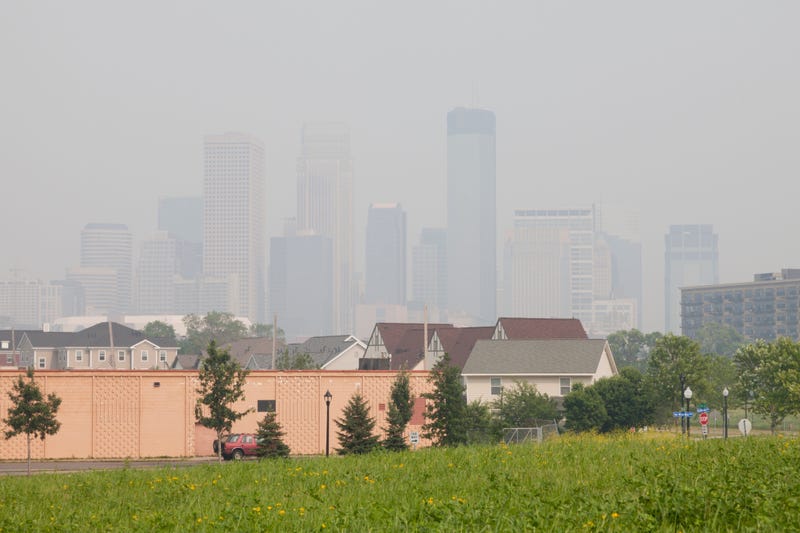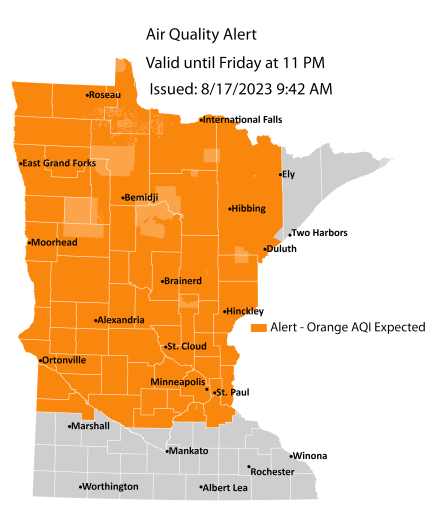
The Canadian wildfire smoke isn’t here quite yet, but WCCO Meteorologist Paul Douglas says it’s coming, and Minnesotans should prepare for another round of air quality alerts.
An Orange Alert is now under effect for central and northern Minnesota - including the Twin Cities - through Friday night. An earlier Red Alert has been downgraded to Orange. Portions of the alert have been canceled for far southern Minnesota and the Arrowhead region as well.
“It looks like that upper-level smoke, smoke in the upper levels of the atmosphere, will be brought down to the surface, brought down to the ground by afternoon,” Douglas said. “So I do expect conditions to get worse as the days go on.”
Pollution Control Agency officials say the air quality index is expected to reach the orange category, meaning the air will be unhealthy for sensitive groups. Douglas says that everyone should still be careful.
“Really, everybody should take this seriously,” he said.
The MPCA says winds will become southerly overnight and will prevent the heaviest smoke from reaching southern Minnesota. Smoke will linger across the alert area through Friday afternoon. Smoke will continue to disperse as it retreats away from the state. Air quality should improve below alert levels by late Friday.

Orange air quality: Unhealthy for sensitive groups
Sights and smells: In areas where air quality is in the orange AQI category due to wildfires, the sky may look hazy and residents may smell smoke even when wildfires are far away.
Health effects: This air is unhealthy for sensitive groups and pollution may aggravate heart and lung disease as well as cardiovascular and respiratory conditions. Symptoms may include chest pain, shortness of breath, wheezing, coughing, and fatigue.
What to do: People in sensitive groups are encouraged to reduce outdoor physical activities, take more breaks, or do less intense activities to reduce their exposure. People with asthma should follow their asthma action plan and keep their rescue inhaler nearby.
Minnesota has had a record number of air quality alerts this spring and summer due to those Canadian wildfires.
The worst day so far was June 14, when the air quality index hit 243, where researchers say breathing the air was roughly the equivalent of smoking more than eight cigarettes.


